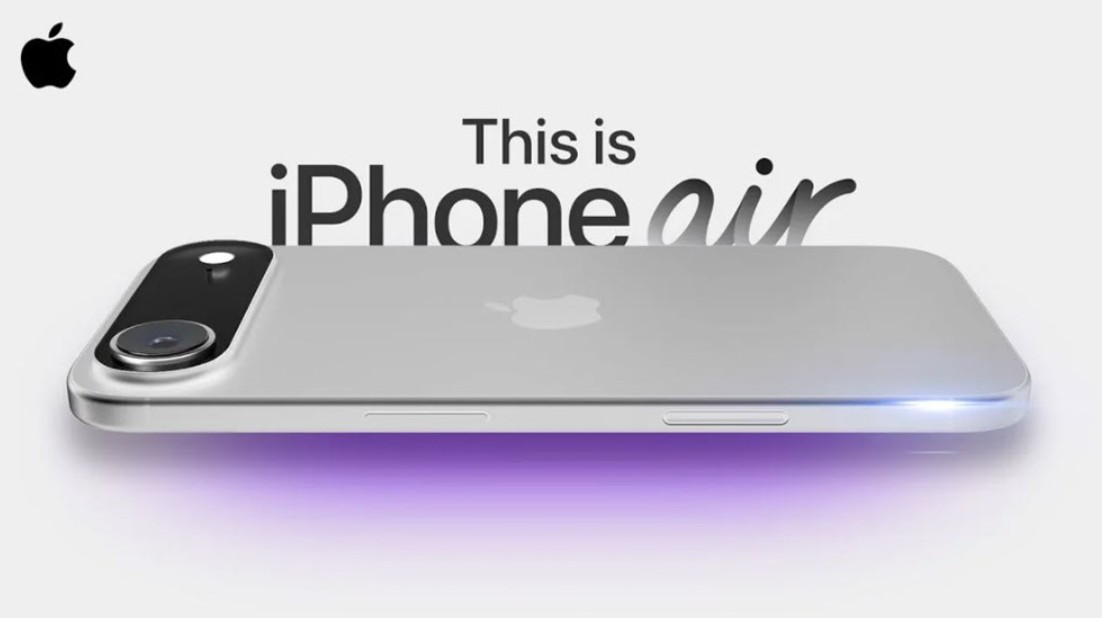Best Selling Products
After Siri, Apple Intelligence continues to "Vietnamize" on iPhone
Nội dung
According to those who have experienced iOS 26.1 Developer Beta 1, Apple Intelligence in Vietnamese is available, although it is not yet complete. To activate it, users need to change the primary language of the iPhone to Vietnamese.
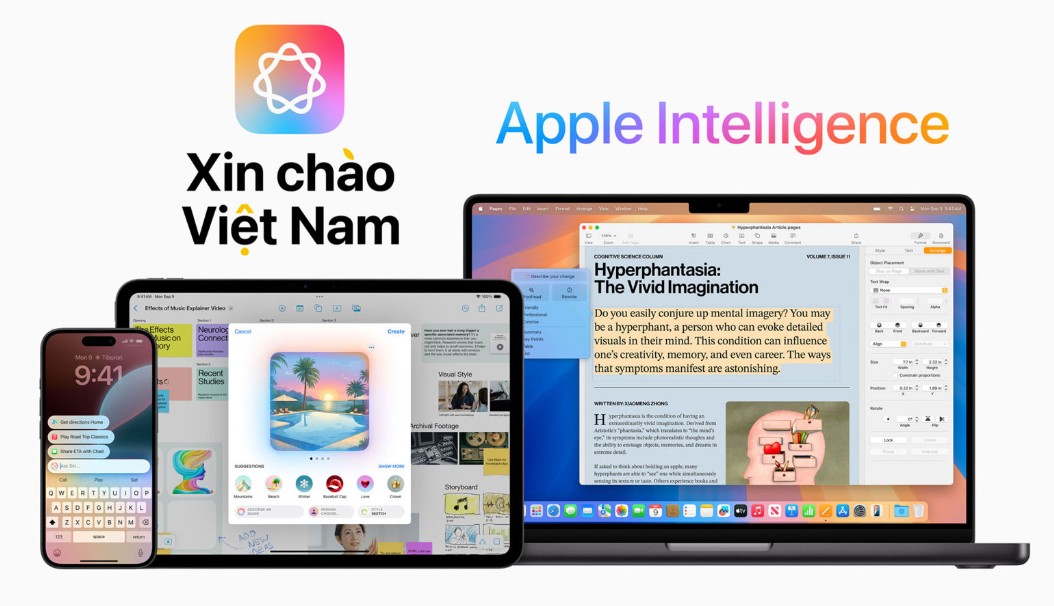
In recent years, artificial intelligence (AI) has become more than just an academic or high-tech concept; it has become an essential part of the digital lives of hundreds of millions of users worldwide. From searching for information, creating content, to managing daily tasks, AI is gradually changing the way we interact with technology devices.
With the Apple ecosystem, Vietnamese users have long been waiting for an important step forward: support for the Vietnamese language in artificial intelligence tools. After Siri officially supported Vietnamese, Apple Intelligence was the next name that the community was looking forward to. And now, that expectation is becoming a reality, when many users have discovered that this feature works on iOS 26.1 Developer Beta version.
This article will analyze in detail the journey of Apple Intelligence to Vietnamese users, the new experiences it brings, and at the same time evaluate the profound significance for the Apple ecosystem as well as the domestic mobile technology market.
1. Apple Intelligence from WWDC 2024 to iPhone 16 series
Apple Intelligence was first introduced at the annual event for developers – WWDC 2024. This is an important step for Apple to participate more deeply in the artificial intelligence race, which has exploded with the participation of giants such as Google, Microsoft and OpenAI.
During the launch of the iPhone 16 series in September of the same year, Apple spent a lot of time demonstrating the capabilities of Apple Intelligence: from answering natural questions, supporting text rewriting, to understanding the context in emails or messages. Although it was impressive in terms of demonstration, in reality, this feature repeatedly missed the deadline. iPhone users could not fully experience what Apple advertised, and many responses even said that Apple's AI was far behind its Android competitors, which had been widely deployed before.
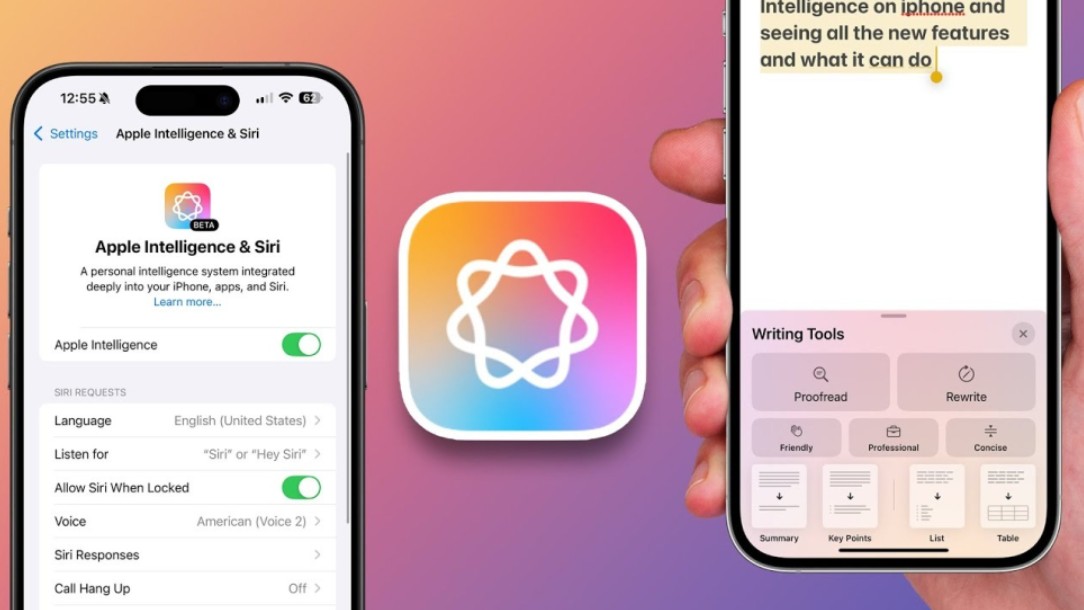
This lack is even more regrettable when Apple is famous for its seamless ecosystem, where every feature is delicately integrated to create a complete experience. Therefore, when Apple Intelligence is mentioned, the Vietnamese community not only expects an intelligent support tool, but also waits for a new mark in Apple's journey to localize the technology experience for domestic users.
The event of Siri supporting Vietnamese has caused a big stir. This is not only a technical move, but also shows that Apple values the Vietnamese market. When users can command Siri in their mother tongue, the language barrier gradually disappears, bringing a more friendly and closer experience.
With Apple Intelligence, the level of personalization and interaction promises to be even higher. If Siri is considered an “assistant” that answers simple questions, Apple Intelligence is like an intelligent partner, capable of understanding context and supporting the solution of more complex tasks. The fact that this tool supports Vietnamese will open new doors, helping domestic users no longer feel left behind in the global AI wave.
2. Vietnamese Apple Intelligence appears on iOS 26.1 Beta
According to those who have experienced iOS 26.1 Developer Beta 1, Apple Intelligence in Vietnamese is available, although it is not yet complete. To activate it, users need to change the main language of the iPhone to Vietnamese. From here, a series of new features are opened: direct Q&A in Vietnamese, email summary, text rewriting, important notification recognition and even object removal in photos.
This is an earlier appearance than expected. Because previously, Apple had announced that this feature would only support Vietnamese from the end of 2025. Putting it into testing right in iOS 26.1 Beta shows that Apple wants to speed up the progress, and at the same time listen to feedback from the community to refine before widely releasing.
In the context of the current iOS 26 facing many complaints about minor errors, overheating or unusual battery drain, the presence of an attractive feature like Apple Intelligence in Vietnamese can somewhat regain the sympathy of users.
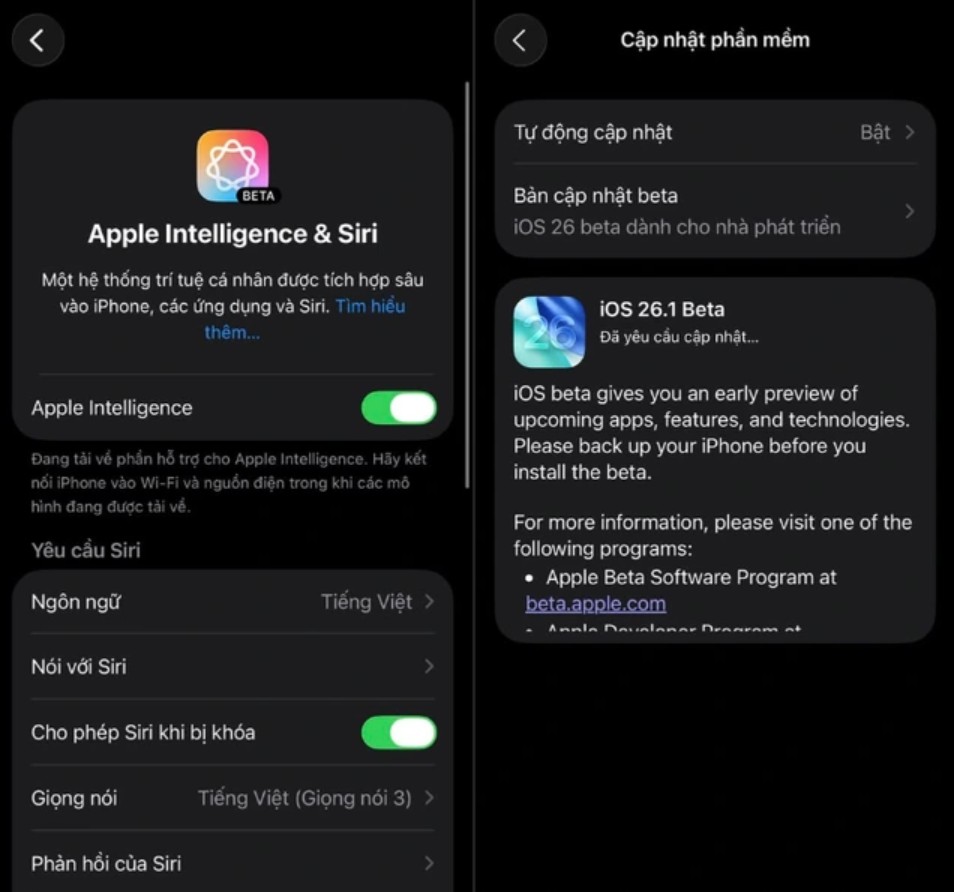
One of the most prominent features is the ability to ask and answer questions directly in Vietnamese. Unlike Siri, which usually only stops at simple commands such as opening an application or answering a short question, Apple Intelligence allows for more natural, conversational and consultative dialogue.
The email summary feature promises to help users save time when dealing with dozens, even hundreds of emails each day. Instead of reading everything, Apple Intelligence will automatically filter out the main content, while emphasizing important details.
The ability to rewrite text will be a great support for students, office workers and even creative content creators. From editing grammar, changing writing style, to shortening sentences, this tool will contribute to improving work efficiency.
For notifications, Apple Intelligence not only displays, but can also identify the level of importance, helping users not miss necessary information in the sea of daily messages. Along with that, the feature of removing objects in photos provides a quick and smart editing tool, meeting the needs of virtual life and creating image content.
In particular, when combined with Vietnamese Siri, the experience becomes more comprehensive. Users can control smart home devices in their native language, from turning on and off lights, adjusting the temperature to controlling security cameras. This is the vision of a truly Vietnamese-friendly smart home.

Despite its promise, Apple Intelligence in Vietnamese will still face many challenges. The Vietnamese language is famous for its complexity, rich in tones and diverse semantics. For AI to understand context, distinguish nuances of meaning and process accurately, Apple needs a huge database and a thorough training process.
In addition, data security is also an important factor. Apple has long emphasized the “Privacy First” philosophy: user privacy is a top priority. However, for AI to work effectively, personal data will certainly be processed to some extent. Balancing convenience and security will be a problem that Apple must thoroughly solve if it wants Apple Intelligence to be widely trusted in Vietnam.
3. Significance for the Vietnamese market
Apple Intelligence’s support for Vietnamese goes beyond a language update. It signals that Apple sees Vietnam as an important market in Southeast Asia, where the iPhone is consistently among the best-selling premium products. With a young, tech-savvy population and a willingness to spend on modern devices, Vietnam is an ideal “destination” for Apple’s localization strategy.
More user-friendly experience
Vietnamese support makes it more familiar and accessible to users. Instead of relying on English, they can directly communicate with Apple Intelligence in their native language. From students needing to summarize study materials, office workers wanting to rewrite reports, to ordinary users who just want to filter emails or remove objects in photos, all can be done with a few simple commands in Vietnamese.
Strengthen and expand customer base
From a branding perspective, Apple Intelligence in Vietnamese will strengthen the loyalty of existing customers. Users feel that Apple cares about them, thereby staying more engaged in the ecosystem. At the same time, this feature also opens up opportunities to attract new customers, especially those who were previously hesitant to use AI due to language barriers. Now, with only Vietnamese, they can take advantage of the full power of AI on iPhone, iPad and Mac.
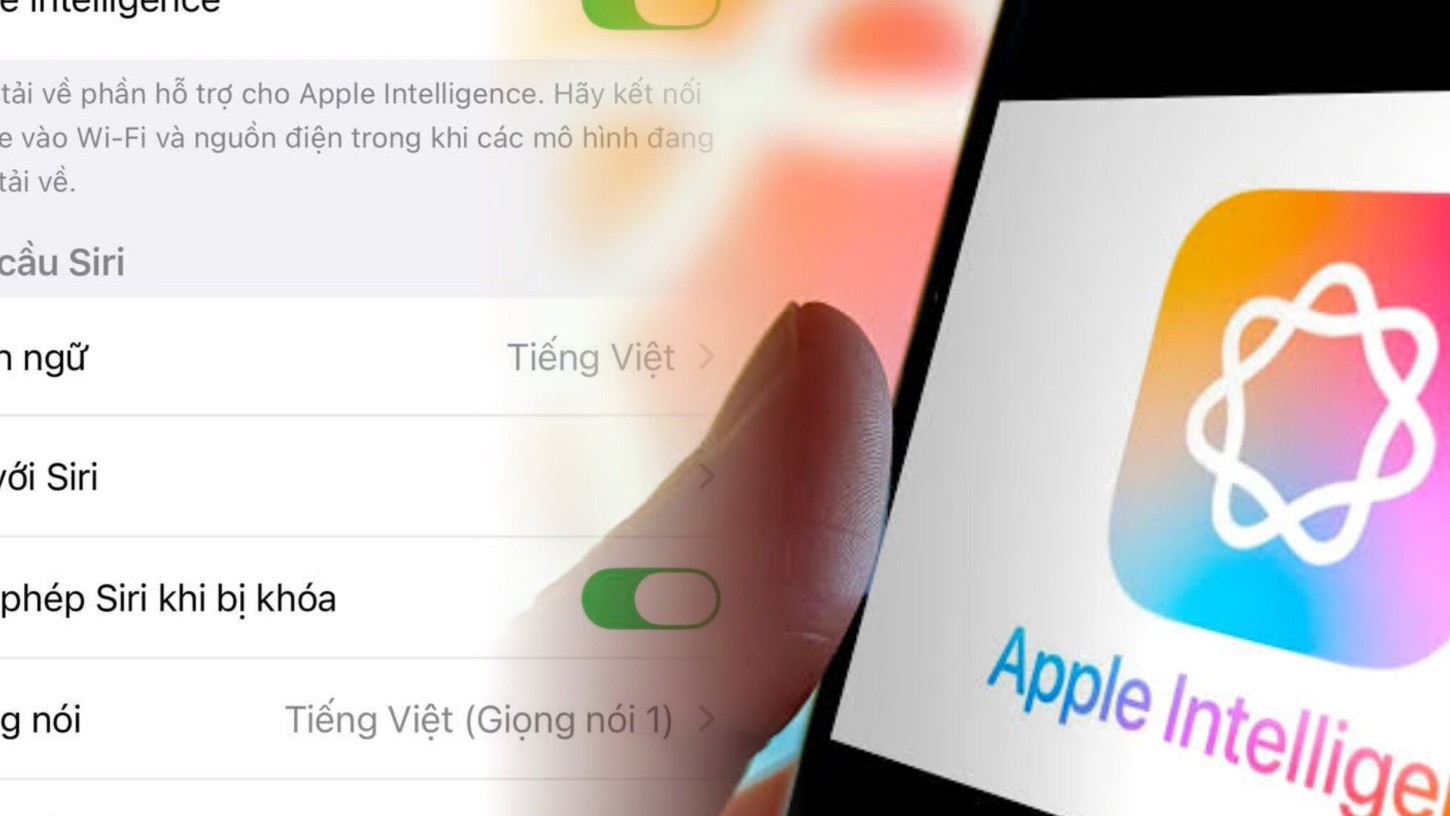
Opportunities for businesses and organizations
Domestic businesses will also benefit. Apple Intelligence can support text summarization, content editing, data analysis or information management quickly in Vietnamese. This helps companies save time, increase productivity, and at the same time create conditions for employees to focus on more creative work.
Long-term impacts and market competition
In the future, Apple Intelligence in Vietnamese will become an important piece of the Apple Silicon ecosystem. Users can start work on iPhone, continue on iPad and finish on Mac, all seamlessly, all in Vietnamese. This is the localization experience that Apple is aiming for, and at the same time, it is also a pressure for Android manufacturers to quickly improve the quality of AI in Vietnamese to maintain market share.
Spiritual values
Besides the technological aspect, this event also has a symbolic meaning. It shows that Apple has seriously invested in Vietnamese. Vietnamese users are no longer left out of the global AI game, but have become part of the most advanced technology map.
4. Conclusion
After Siri, Apple Intelligence supporting Vietnamese will be the next big step, bringing Vietnamese users into the global AI wave. Although there are still limitations and challenges, the early appearance of this feature on iOS 26.1 Beta shows Apple's determination to meet users' needs.
From supporting learning, work to entertainment and life management, Apple Intelligence promises to become a smart companion for millions of Vietnamese people. And perhaps, in just a short time, we will officially experience the full convenience that Apple brings right in our own language.










































